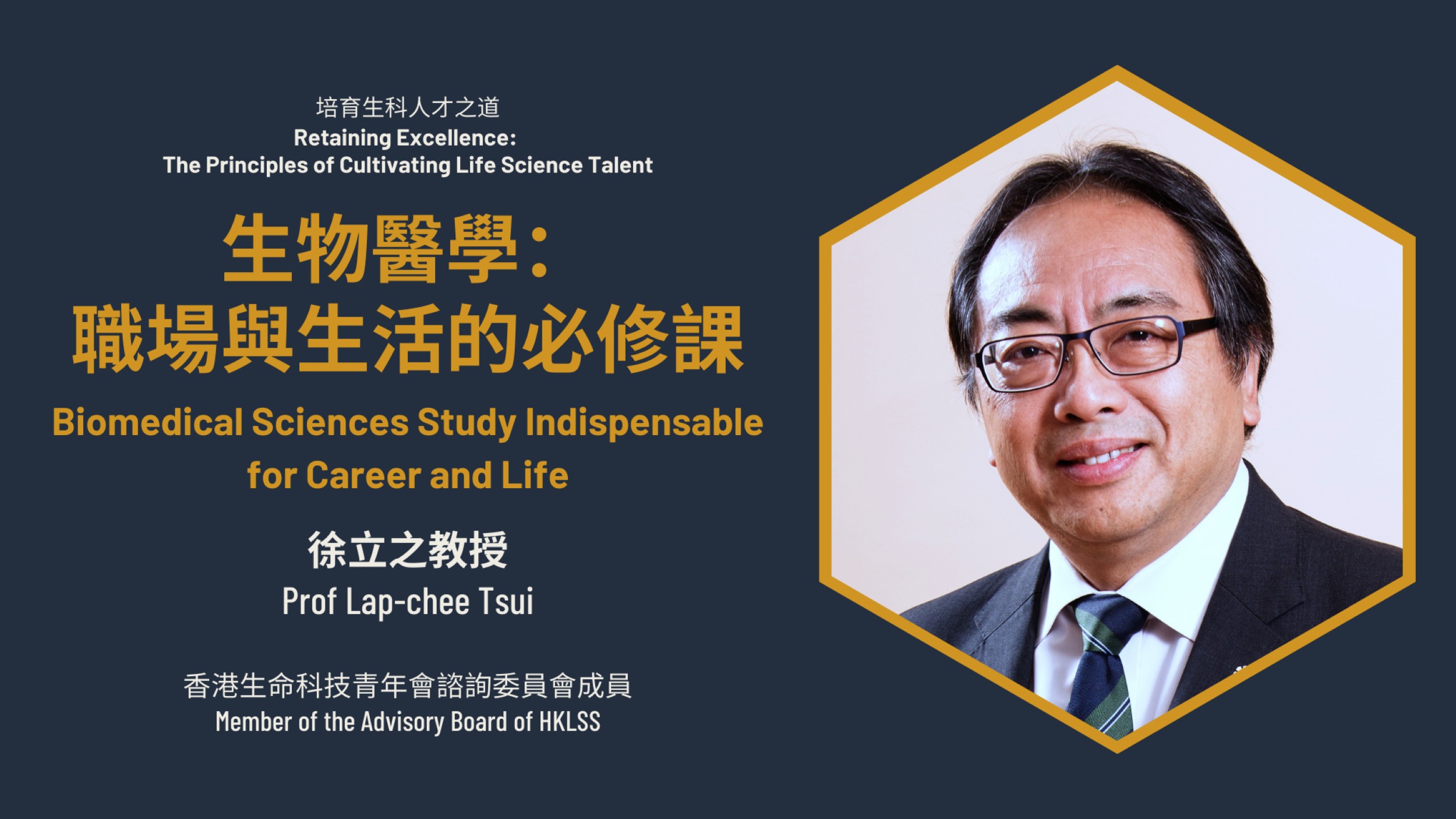“This century belongs to biomedical research and biomedical sciences,” Professor Tsui Lap-chee states emphatically, adding, “Life sciences are going to flourish in front of your eyes.” Having held various positions in the industry, both locally and abroad, for over five decades, the world-renowned molecular geneticist has witnessed firsthand the exponential growth of the field. “Biology, especially life sciences, is the fastest-growing field of study in the 21st century,” he emphasizes.
Professor Tsui is perhaps the most appropriate person to approach for insights on the advantages Hong Kong possesses from an academic perspective. The former Vice-Chancellor and President of The University of Hong Kong, who had been in office for 12 years since 2002, highlights, “We have very strong basic research in the biomedical area.” Making reference to the region’s exceptional efforts in pioneering research among research labs, hospitals, and other healthcare services to combat SARS and COVID-19, he adds, “Hong Kong is poised to play a role in life sciences due to its excellent research capacity and medical service in its universities.” For this, the city has him to thank. With him at the helm, the University had shown immense dedication to attracting outstanding postgraduate students from overseas, who have now become a major source of Hong Kong's research strength.
The scientist-turned-educator goes on to share another observation about the educational aspirations of local youth. Generally speaking, secondary students are accustomed to pursuing study paths that would lead to clear job prospects, and therefore subjects related to well-established job titles such as doctors, lawyers, and engineers, are highly sought after. In contrast, life sciences positions are less well defined and thus may appear less appealing, although they can be just as purposeful and well paid.
Given the growing global importance of life sciences, Professor Tsui encourages schoolchildren to take biology and biomedical subjects, eloquently articulating his valuable advice, “Students should develop a strong interest in these subjects. Besides working directly in life sciences and biotech, students will find the knowledge not only useful in other lines of work, such as engineering, finance and the legal profession, but also important in our daily life, as they have an immediate relationship with our environment, food, health, etc.”
Yet, classroom training alone is not enough to cultivate brilliant scientists like Professor Tsui. He enthusiastically shares his fond memories of his one and only summer internship experience at a molecular biology lab in his sophomore year, saying, “The happiness of seeing the results from the experiments I was involved in is difficult to describe, and that’s why I pursued a research career afterwards.”
Reflecting on the significance of the Summer Internship Program and the array of extra-curricular initiatives organised by Hong Kong Life Sciences Society (HKLSS) where he served on the Advisory Board, he notes, “HKLSS can help students acquire in-depth knowledge in their areas of interests and gain experience in the workings of life sciences and biotech at an early stage in life.”
While a vibrant upstream sector of life sciences ecosystem in Hong Kong is evident, the development of mid- and downstream segments is quickly catching up. Indeed, Hong Kong boasts several key components necessary for promising advancements, as elaborated by the gentleman: “The government has invested a lot of resources in life sciences and biotech development, such as the establishment of InnoHK and Health@InnoHK. Besides, we have reliable supporting mechanisms here, such as the legal system and investment environment. I’ve also heard that the number of start-ups is increasing, and there is a significant influx of international investment and multinational companies coming to Hong Kong. These are all very good news.”








